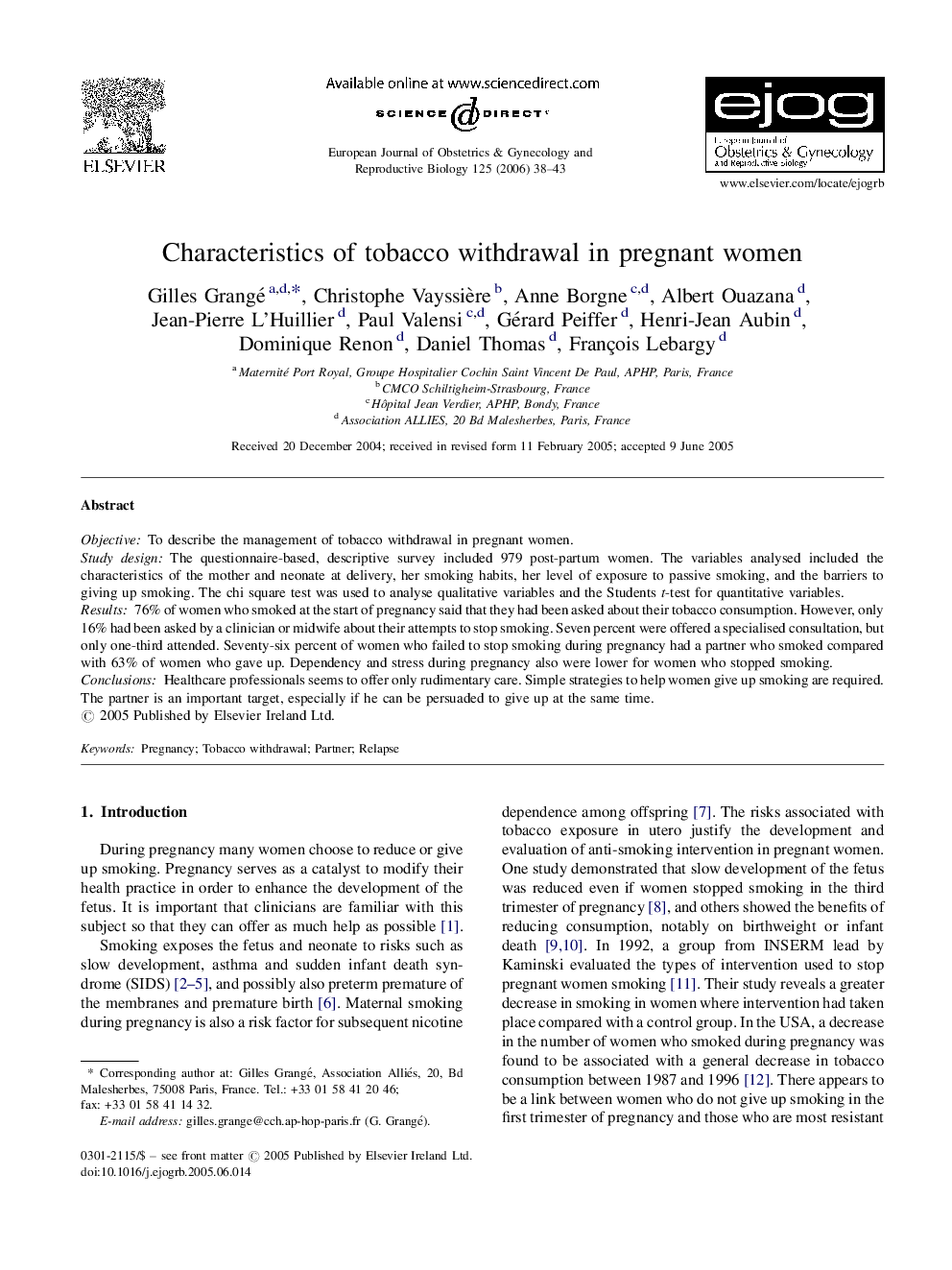| Article ID | Journal | Published Year | Pages | File Type |
|---|---|---|---|---|
| 3922583 | European Journal of Obstetrics & Gynecology and Reproductive Biology | 2006 | 6 Pages |
ObjectiveTo describe the management of tobacco withdrawal in pregnant women.Study designThe questionnaire-based, descriptive survey included 979 post-partum women. The variables analysed included the characteristics of the mother and neonate at delivery, her smoking habits, her level of exposure to passive smoking, and the barriers to giving up smoking. The chi square test was used to analyse qualitative variables and the Students t-test for quantitative variables.Results76% of women who smoked at the start of pregnancy said that they had been asked about their tobacco consumption. However, only 16% had been asked by a clinician or midwife about their attempts to stop smoking. Seven percent were offered a specialised consultation, but only one-third attended. Seventy-six percent of women who failed to stop smoking during pregnancy had a partner who smoked compared with 63% of women who gave up. Dependency and stress during pregnancy also were lower for women who stopped smoking.ConclusionsHealthcare professionals seems to offer only rudimentary care. Simple strategies to help women give up smoking are required. The partner is an important target, especially if he can be persuaded to give up at the same time.
